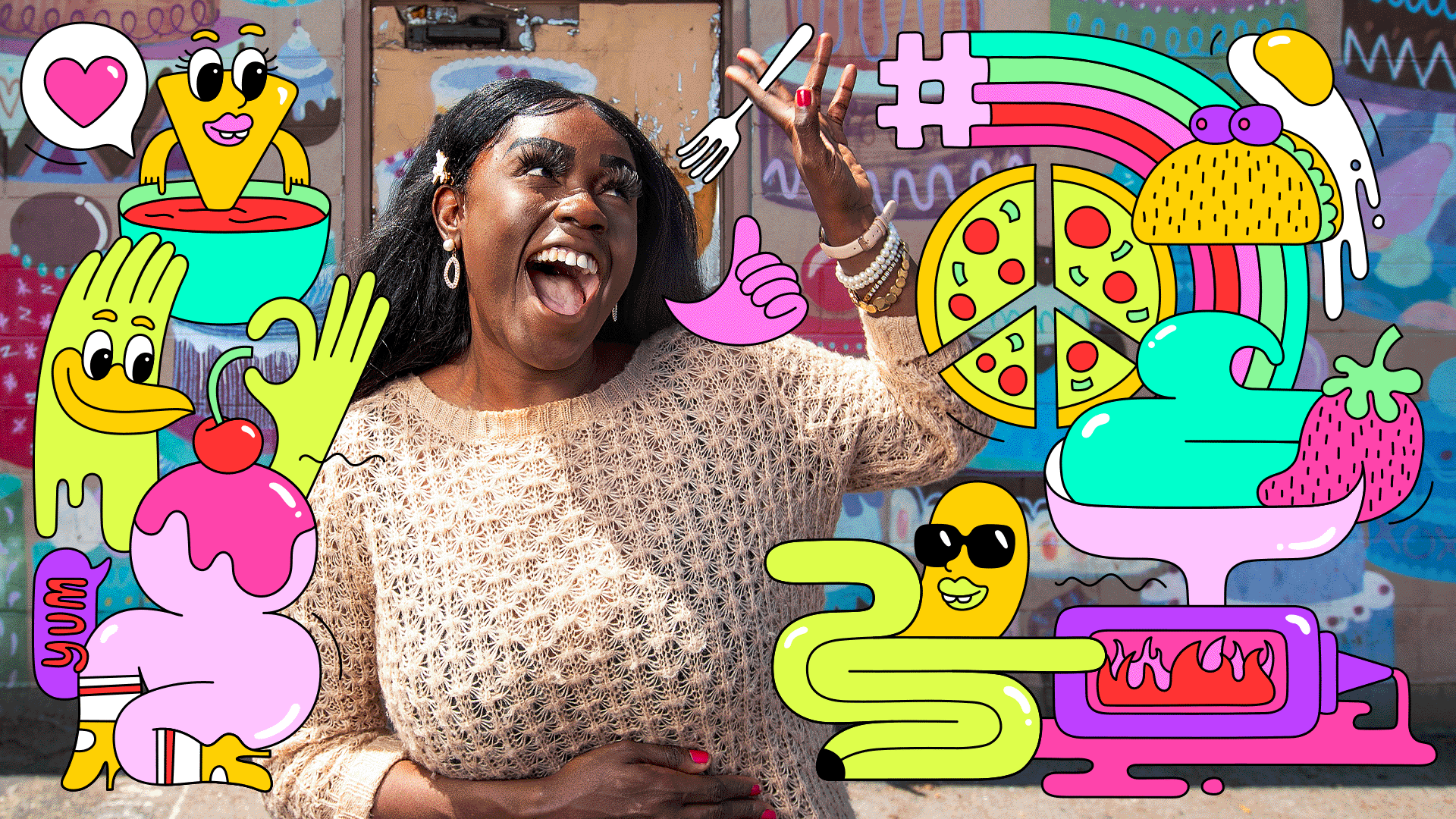Let’s kill ‘girl dinner’ and other food trends I hope die in 2024

- Share via
As the complete and utter trash fire that is 2023 comes to an end, I feel compelled to highlight the one-offs and trends in the food world that I hope to never see again. Here’s to a brighter, more delicious 2024.
Unhinged dunking
People chewing with their mouths open, the word “moist,” scraping nails on a chalkboard. Any number of things can make someone cringe, cower, shut their eyes and cover their ears. This year, for me, it was the unhinged dunking.
I watched countless videos of people dunking their chicken fingers, burritos and sandwiches into cups of salsa and/or ranch that were too small and too full of sauce. I winced as the sauces overflowed and spilled onto tables and laps all over the country. In the most offensive instances, the cups tipped over completely. At the risk of sounding like someone three times my age, or possibly my parents, I find the mess and the unnecessary waste of condiments to be completely unhinged.
Calling every cheesecake ‘Basque cheesecake’
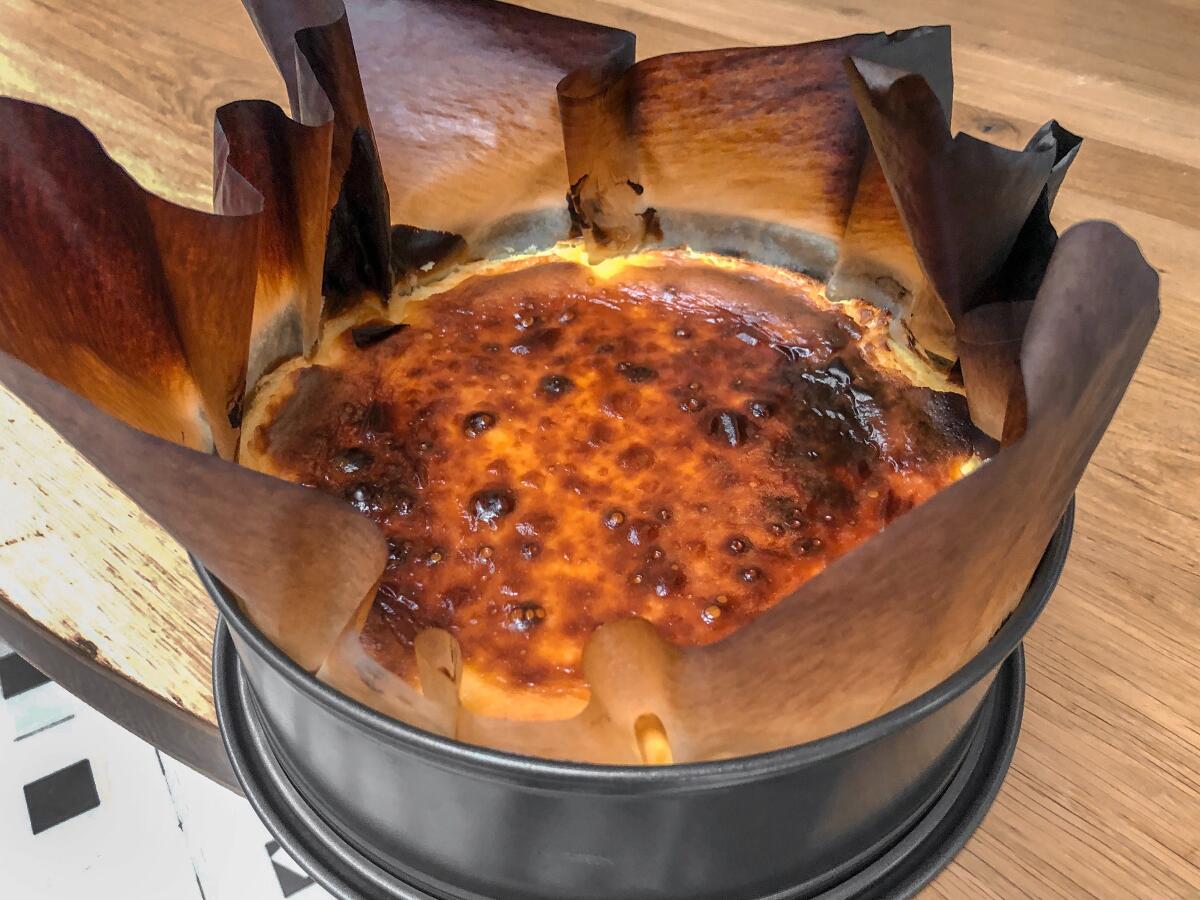
A Basque cheesecake is a specific style of cheesecake from that region of Spain. It’s a crustless cheesecake baked at a high temperature that leaves the top burnt and the middle loose. If the cheesecake isn’t a texture close to custard in the middle, the top isn’t burnt or at least a deep brown color, and if it has any form of crust beyond the cheesecake itself browning into a natural crust of sorts, just call it a cheesecake.
Girl dinner
You may have seen the girl dinner trend on TikTok. The sound of a woman saying, “This is my meal, I call this girl dinner” plays over a video of a plate filled with small scraps of dairy, popcorn kernels and pasta salad.
In another video, the same audio plays while a woman assembles a few strawberries, a string cheese and two hard-boiled eggs. Boxed macaroni and cheese in a wine glass with a Dino nugget garnish. A bag of microwave popcorn. Moldy instant ramen noodles. A pile of cigarettes and a pink drink in a glass. A single piece of Swiss cheese. These are all “girl dinner” on TikTok.
Users seem to associate haphazardly thrown together food pairings with what a girl eats for dinner. There should never be any absolute rules when it comes to dinner. But why must the term “girl dinner” imply that girls are not capable of doing more than throwing together random ingredients that may or may not be edible? And in some cases, like with the single piece of cheese, there’s an aspect of diet culture that could potentially perpetuate unhealthy eating habits.
Unless we start calling “girl dinner” gender-neutral I-can-eat-whatever-I-want dinner, let’s kill it.
Fake restaurant reviews on social media
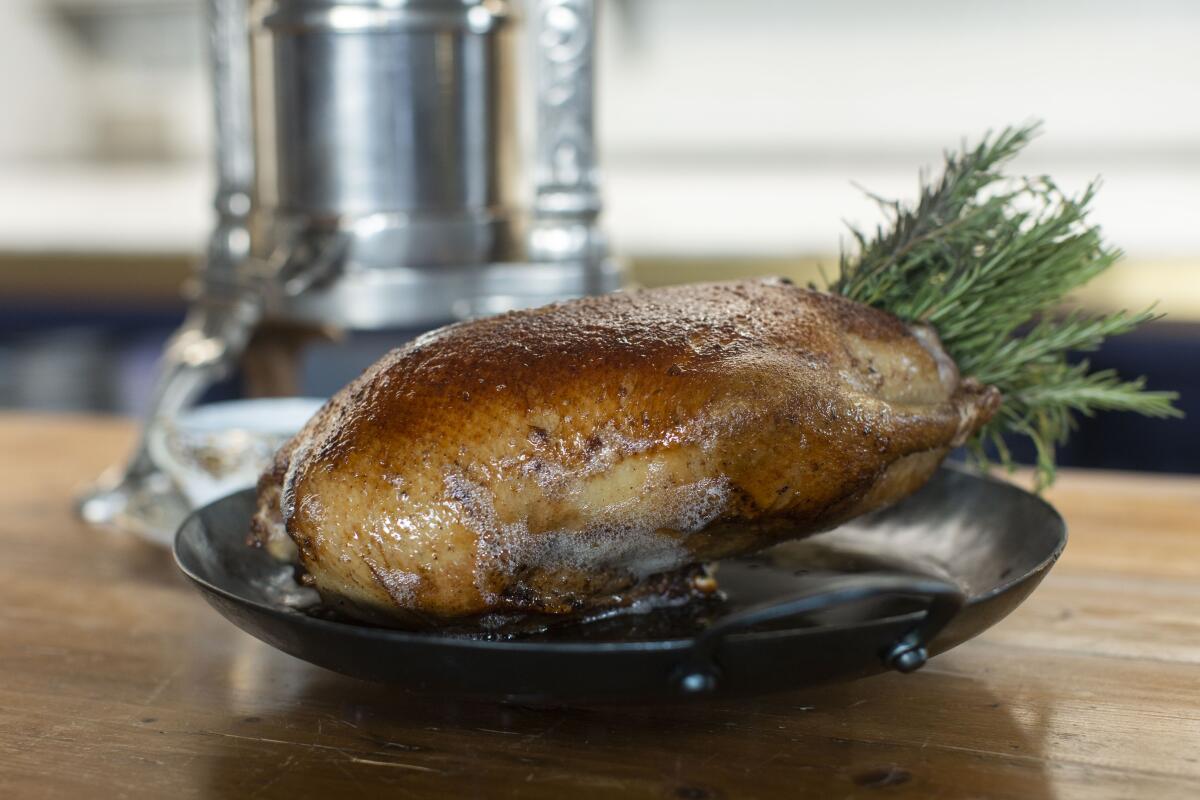
Can you trust a food review on TikTok? There are more than 38 billion videos with the hashtag #foodreview, used by gourmands in their cars, rich kids at swanky restaurants, Disneyland stans eating around the park and just about everything in between. Some are incredibly useful and entertaining. Some are egregious and unethical abuses of a user’s influence and following.
Earlier this year, a TikTok personality who goes by the name @mister.lewis posted a video of his review of Pasjoli restaurant in Santa Monica on the app. It has more than 12 million views. In the video, he asks for the most expensive bottle of wine and appears to order a $3,500 bottle of 2000 Chateau Margaux.
Free food, getting paid to post and hundreds of thousands of social followers. A look into the world of food influencers.
He dramatically swishes around some red wine in the glass. “This is what? Like a $1,000 glass,” he says.
Next, he asks for the most expensive item on the menu. He films chef Dave Beran preparing the canard à la Rouennaise à la presse. He takes some bites of the duck and its various accoutrements, makes some faces, then says he’s going to his car to give an honest review.
He divulges that he’s not normally a duck person and gives the duck a rating of 5 out of 10. “Was this duck worth $200? Hell no.”
Then he seems to feed a piece of his leftover duck to his dog.
The only problem? Well, there are many. But first, according to Beran, who posted a response to Lewis’ video in an Instagram story, Lewis never ordered or tried the 2000 Chateau Margaux. He canceled the bottle after he videoed himself ordering it and asked for a $26 glass of wine instead. Beran goes on to say that Lewis actually had the lowest check average of the evening. The chef also claims that Lewis let his food sit for “a good 20 minutes” before he took a bite.
There’s no telling how many of the millions of people who watched the video will let it influence how they feel about the restaurant. Videos like this are irresponsible, unethical and potentially harmful to the businesses they highlight and the livelihoods of employees. If you’re going to post a review of something, be transparent and, at the very least, be respectful.
Here’s a guide on how to tell the difference between an L.A. Times journalist and a food influencer.
Fake meat-tasting ‘meat’

The proliferation of fake meat isn’t a trend, really, as much as it is a growing multibillion-dollar industry. And I understand the sentiment behind it. Get people to eat less animal protein by serving them something that mimics meat. But the issue remains, how far should the mimicking go before it becomes a problem? My plant-based burger shouldn’t need to “bleed.” It’s frightening that as a society, we can’t wrap our heads around embracing plants that don’t look and taste like meat.
If the taste and texture of a patty made from soy protein concentrate and methylcellulose encourages you to eat less meat, and therefore lessen your carbon footprint, that’s great. I just want my hamburger to be a hamburger made from ingredients I can pronounce, whether it’s beef, chicken, pork, shrimp, salmon — or mushroom, black bean and barley.
Krispy Kreme smash challenge
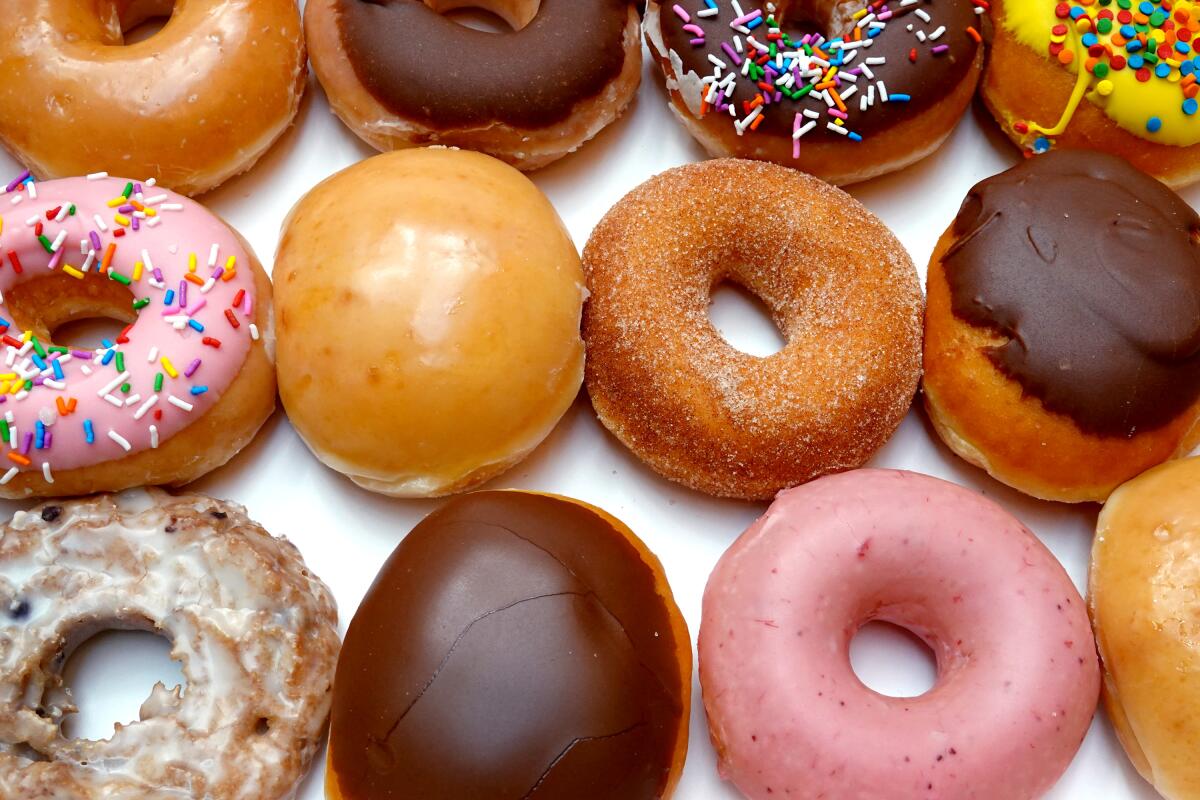
It’s exactly what it sounds like. People are ordering a dozen Krispy Kreme doughnuts, stacking six, eight or all 12 of them at a time, then smashing them together into one large doughnut. Then they attempt to shove the now-12-in-one doughnut into their mouths and finish it in one sitting. My jaw hurts just watching.
“I’m going to show you how to efficiently eat six doughnuts at a time,” says one woman before she proceeds to smash six doughnuts and eat them in a video.
Why?
Krispy Kreme doughnuts are magical because you can get them warm when the hot light is on, and because the delicate glaze on the original is like a sheet of glass that cracks, then melts. And because the dough is soft and pillowy. When you smash it, you ruin the magic. Don’t ruin the magic.
The male-dominated power list
Everyone loves a good list, right? And why not recognize the who’s who in the restaurant world? The handful of hospitality power lists released this year seemed to primarily recognize the accomplishments of men, and only acknowledge women who are attached romantically or fiscally to a man. These lists also largely ignored women of color and the many women in Los Angeles and across the country making strides in the industry both locally and nationally.
Where was the recognition for the women running Regarding Her, an organization that secures funding and resources for female-run businesses? I want to read a list that recognizes where the industry is headed, actually. I want lists that spark conversation and a move toward a more equitable future for everyone. And sorry, but you can’t have such a list while erasing half of the general population.
Truffle-flavored everything
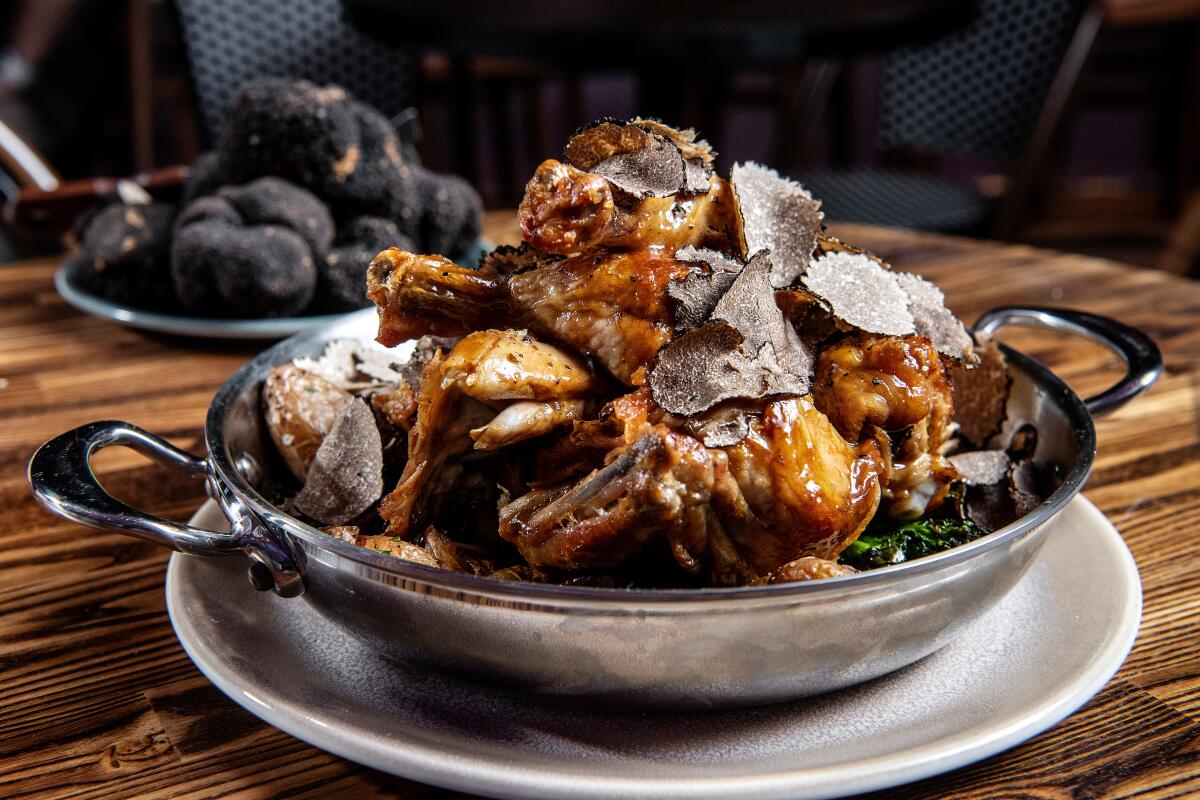
I appreciate a waterfall of shaved truffle falling over my plate of pasta.
Actual truffles are difficult to procure, expensive and have a short shelf life. Their value is uncontested, and if you want to make something more luxurious, by all means, shave a truffle on top. Even that one time I had truffles on my cheesecake made sense at the time. But “truffle-flavored” with truffle oil is another story. That faux, pungent, earthy fragrance permeates everything it touches. Truffle oil drizzled on anything is that monster on the hill slowly lurching toward my favorite food.
De-truffle oil your minds in 2024, people.
*
Tomorrow, my list of food trends I hope to see more of in 2024.
More to Read
Eat your way across L.A.
Get our weekly Tasting Notes newsletter for reviews, news and more.
You may occasionally receive promotional content from the Los Angeles Times.
